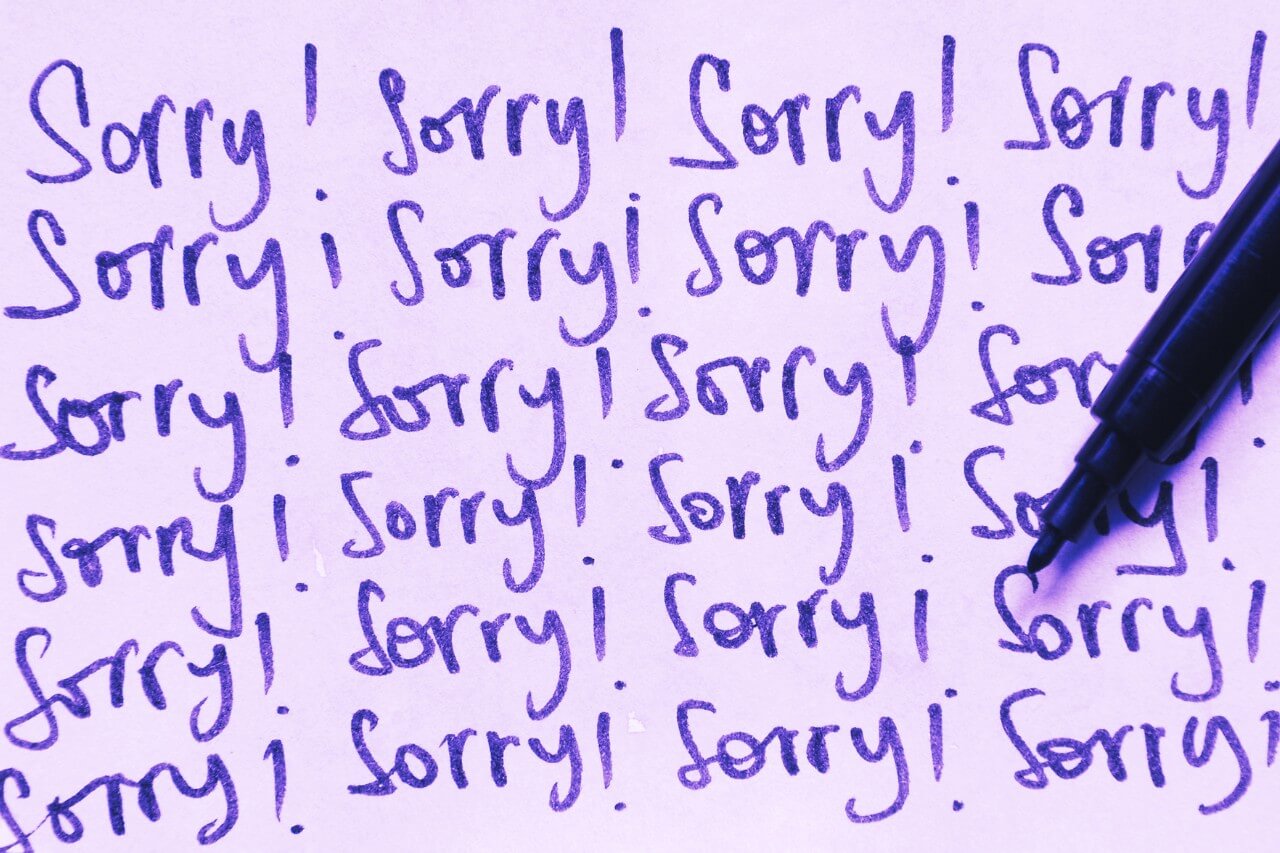
Last month we talked about two tricks to handle feedback and in that, I mentioned not apologising. So, I thought I’d elaborate on that this month as it’s something VERY dear to my heart and something that seems to cause contention.
If you’re already feeling irritated at the thought of not apologising, then you really need to read this. And if you’re happy to give up the insistent ‘sorry’ then read on too, you’re gonna love this!
Years ago, it became apparent to me that negative speech has infiltrated a lot of our communication. One day, I remember asking my darling mum how she was, and she said, “Not bad”. The next day I asked again, and she replied, “Not too bad”. I asked her if that meant she was better or worse than yesterday cos I couldn’t tell haha (she’d tell me to shut up lol).
I’d then listen to people speaking, in shops, in service roles, in emails, at the dinner table, at drinks, at home, and see and hear so much negativity it would make your hair curl…it did mine…yet we’re all so unaware of it, it seems.
Especially ‘sorry’, that word has become disingenuous because it’s overused.
People will say ‘sorry’ for so many things that they really needn’t be sorry for – I believe the only time to use ‘sorry’ is when you’re genuinely remorseful.
Why? Because ‘sorry’ is like acid to the soul…it puts you on the defensive. It’s you taking responsibility for things you needn’t and it can come across as weak too. They did a study on why there were more CEOs in America named John than the total number of female CEOs, and they said it’s because of the ‘sorry skirt’.
Around the same time I read ‘Blink’ by Malcolm Gladwell, and he talks about an experiment called The Priming Experiment. They had two groups; each group had to walk up a long corridor to get to a room where they’d see groups of words on the board. They had to create sentences using some of the words…so they had to study the words to think about which ones to use to create a sentence.
The first group had a positive word in each group of words and the second group had a negative word injected into each word group.
Then they walked back out and down the long corridor.
They timed how long it took each group to walk in and to walk out, and guess what…?
The group that had positive words walked faster out than in, and the group that had negative words walked slower out than in!
So the words you use can actually physiologically affect those you’re communicating with!
I know those of you who have worked on your positive self-speak know this anyway!
So, let’s look at the common negative phrases I hear that I bet you use having never seen it this way:
- I’m not sure, I’ll find out for you
- I can’t do tomorrow I can do Thursday
- Please don’t hesitate to contact me if you have any questions
- That’s not our role
- No worries
- Not a problem
- Sorry but could you please pass the salt
Notice that the first part is negative and a total waste of space. Try eliminating that part:
- I’ll find out for you
- I can do Thursday
- Feel free to contact me if you have any questions
- We do this and this, I can give you the details of the team who take care of that
And for the last three – you could use instead…You’re welcome/my pleasure/certainly/all good.
Give this some practice as old habits die hard. But I promise you, you’ll start attracting better outcomes through your communication and feel great about infecting others positively!
Happy infecting!
Share This Blog, Choose Your Platform!
Sign up to receive my epistles in your inbox monthly!




